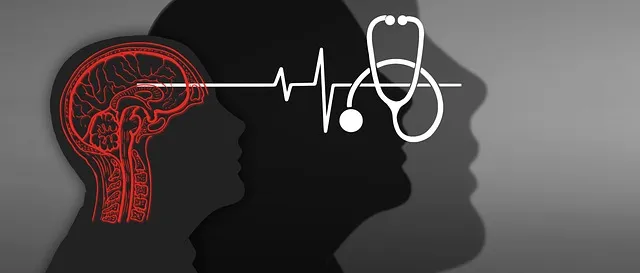The Westminster Kaiser Permanente (WKP) mental health department prioritizes risk mitigation by offering robust support systems for staff, including peer supervision, self-care workshops, and access to resources. They utilize tailored risk assessment methods, cultural sensitivity training, and community outreach to ensure effective care for diverse patients. Their comprehensive strategy includes emotional regulation techniques for staff, regular progress monitoring for patients, stigma reduction, and open communication, enhancing both patient outcomes and provider well-being through the WKP mental health department number.
Mental health professionals are on the frontline of critical care, facing unique risks daily. This article explores comprehensive risk assessment strategies essential for protecting these practitioners and ensuring quality patient care. We delve into the specific challenges within the mental health realm, using the Westminster Kaiser Permanente Mental Health Department as a model, which has developed an innovative approach to risk management. By examining their methodology and key components of a robust strategy, we uncover ways to mitigate risks effectively.
- Understanding the Unique Risks in Mental Health Practice
- The Westminster Kaiser Permanente Mental Health Department's Approach to Risk Assessment
- Key Components of a Comprehensive Risk Management Strategy
- Continuous Evaluation and Mitigation for Optimal Patient Care
Understanding the Unique Risks in Mental Health Practice

The mental health profession, while noble and impactful, comes with unique risks that set it apart from other healthcare specialties. Mental wellness professionals often deal with deeply sensitive and personal issues, carrying a heavy emotional burden. The nature of their work involves intense one-on-one interactions, where they must navigate complex client dynamics, manage challenging behaviors, and explore potentially traumatic life events. This can lead to high levels of stress, burnout, and secondary trauma.
At the Westminster Kaiser Permanente mental health department (a leading provider known for its comprehensive services), recognizing these risks is paramount. They offer extensive resources and support systems, including peer supervision, professional development workshops focused on self-care, and access to mental wellness journaling exercises and guidance. Fostering a culture that prioritizes inner strength development helps ensure professionals can provide the best care while maintaining their own mental wellness.
The Westminster Kaiser Permanente Mental Health Department's Approach to Risk Assessment

The Westminster Kaiser Permanente Mental Health Department embraces a comprehensive and nuanced approach to risk assessment, recognizing that each client’s journey is unique. They prioritize Westminster Kaiser Permanente mental health department number accessibility and cultural sensitivity in their practices, ensuring every individual receives tailored support. This strategy involves meticulous evaluation of various factors, including personal history, current circumstances, and potential triggers, to predict and mitigate risks effectively.
Their method incorporates discussions around Cultural Sensitivity in Mental Healthcare Practice, understanding that cultural backgrounds significantly influence mental health experiences. By creating a safe space for clients to share their perspectives, the department aims to develop interventions that resonate with diverse populations. Moreover, they integrate insights from the Mental Wellness Podcast Series Production and Trauma Support Services to stay abreast of emerging research and innovative support methods, enhancing their risk assessment capabilities and ultimately improving client outcomes.
Key Components of a Comprehensive Risk Management Strategy

In developing a robust risk management strategy for the Westminster Kaiser Permanente mental health department, several key components must be considered. Firstly, emotional regulation among healthcare professionals is paramount. Implementing strategies to support staff well-being and manage stress is essential to prevent burnout and ensure consistent patient care. This includes regular supervision, peer support systems, and access to therapy services within the department.
Additionally, integrating a Community Outreach Program Implementation can enhance risk mitigation efforts by fostering connections between mental health services and local community resources. Encouraging cultural sensitivity in mental healthcare practice is another vital aspect, as it helps address diverse patient needs effectively. By incorporating these elements, Westminster Kaiser Permanente can create a supportive environment that minimizes risks and promotes positive mental health outcomes for both patients and providers.
Continuous Evaluation and Mitigation for Optimal Patient Care

The Westminster Kaiser Permanente mental health department number serves as a critical beacon for patients seeking support. Beyond initial assessments, continuous evaluation is paramount for optimal patient care. This involves regular monitoring of patient progress, adjusting treatment plans based on evolving needs, and fostering open communication channels. By integrating these practices, the mental health department can effectively mitigate risks associated with mental illness, ensuring personalized and adaptive care that addresses each patient’s unique challenges.
Continuous improvement efforts are further bolstered by initiatives aimed at Mental Illness Stigma Reduction Efforts and Public Awareness Campaigns Development. Educating both patients and the broader community about mental wellness promotes understanding and empathy, fostering an environment where individuals feel comfortable seeking help without fear of judgment or discrimination. These collective strategies not only enhance patient outcomes but also contribute to a more supportive and inclusive society.
The Westminster Kaiser Permanente Mental Health Department has pioneered an effective risk assessment framework, demonstrating a comprehensive approach to protecting both professionals and patients. By recognizing the unique risks within their practice and implementing key components of risk management, they ensure continuous evaluation and mitigation. This strategy not only enhances patient care but also fosters a resilient environment for mental health professionals. Adopting similar strategies could significantly benefit other mental health departments, creating safer and more supportive workspaces.






